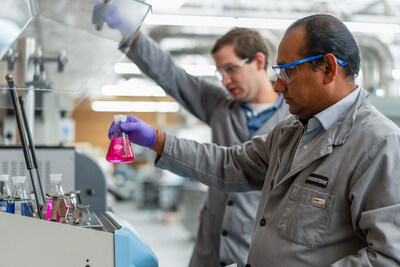DOE Grant Supports Bridgestone Innovation for Non-fossil-based Synthetic Rubber
The company plans to utilize the butadiene produced to further study and confirm the potential use as a feedstock for raw materials in Bridgestone tires.
"Projects like this will help advance the science and technologies necessary to make the industry more sustainable, placing our engineers and scientists at the forefront of potentially revolutionizing how tire makers obtain butadiene in a more nature-positive way," said Dr.
The
Bridgestone has partnered with
Butadiene is a key ingredient in tires today and typically represents the No. 1 ingredient (by volume) in synthetic rubber that is derived from fossil fuels. The goal of this project is to assess, and hopefully prove, the economic viability of deriving butadiene from ethanol conversion versus fossil fuel conversion. If the economics prove viable, then low carbon intensity ethanol (or ethanol derived from bio-based or recycled materials) could replace the use of fossil fuels in the process to obtain butadiene.
The project officially starts this month and will span at least three years:
- Year 1 – Design of the pilot plant
- Year 2 – Build the pilot plant (
Akron, Ohio ) - Year 3 – Staff and operate the pilot plant
This project is the latest example and tangible proof of Bridgestone efforts to pioneer sustainable solutions and live out its E8 Commitment in the areas of "Ecology," "Energy" and "Efficiency."
This innovative new process could represent a major step forward for Bridgestone as it progresses along its sustainability journey, advancing toward Bridgestone's goal of using 100% sustainable raw materials in its tires globally by 2050.
About
![]() View original content to download multimedia:https://www.prnewswire.com/news-releases/doe-grant-supports-bridgestone-innovation-for-non-fossil-based-synthetic-rubber-302282306.html
View original content to download multimedia:https://www.prnewswire.com/news-releases/doe-grant-supports-bridgestone-innovation-for-non-fossil-based-synthetic-rubber-302282306.html
SOURCE


